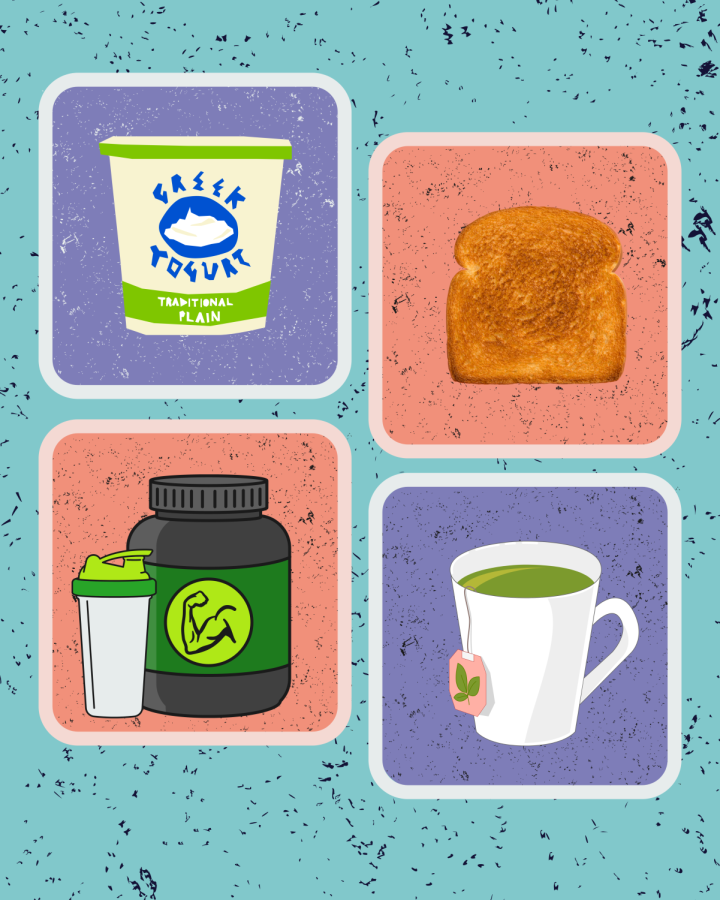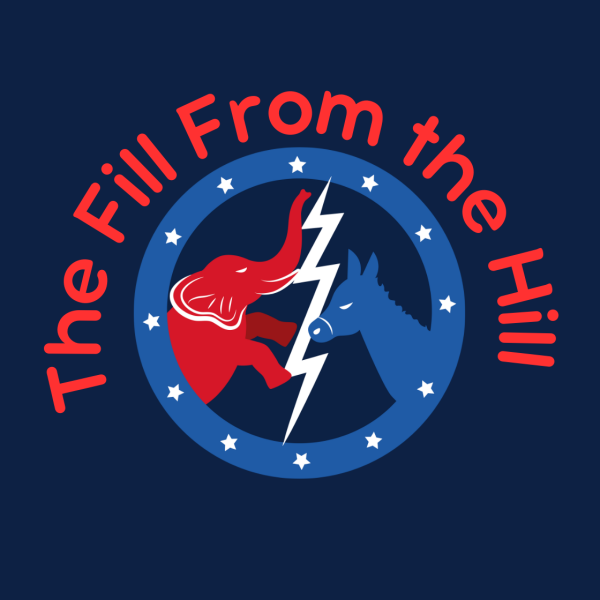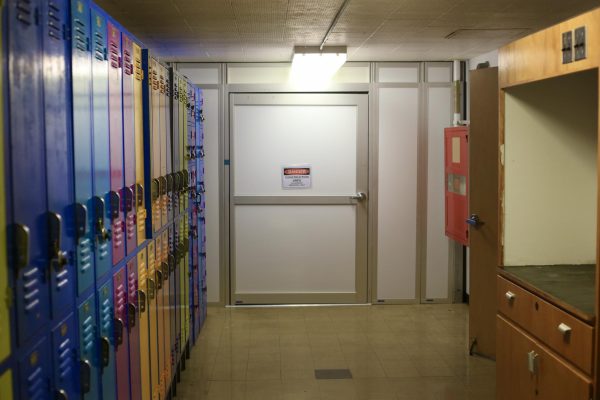Morning necessities: Breakfast on the menu
According to a Harvard Medical Publication, getting more sleep can help contribute to a better memory. Graphic by Will Baker.
Have you ever woken up from a good rest and wondered what you want to eat or how much food you want to eat?
Morning routines are standard for most people as they are daily activities that students, faculty and staff do to have a successful day.
Whether the person is a student or an employee, a morning routine is done before heading out.
It can be simple ones that only involve getting dressed, eating and then driving to work, or it could be more complex.
Around 97% of people have a morning routine to start the day off, whether drinking coffee or working out; it’s one of the few things people start with, according to the Harvard Business Review.
One of the essential parts of every morning routine is breakfast.
Breakfast
Breakfast is the most important meal of the day, according to the Better Health Channel, with it being the meal that breaks the fasting period after overnight sleep.
Though a few would actively skip, skipping breakfast could cause a 27% risk of heart disease and 20-21% risk of type 2 diabetes in both men and women, according to a survey from the Harvard School of Public Health.
Not having food in your body can also affect behavior and moods.
Liza Serrano, a child development major, said that she usually eats breakfast on the weekends. On the weekdays, when she does eat, it’s mostly at around 8-10 a.m.
“I don’t eat breakfast during the weekday, and days I have school or work,” Serrano said. “Not eating breakfast does affect my mood because my stomach growls throughout the day.”
When enjoying breakfast, it’s not always the case that you’ll want to keep eating the same thing, as different varieties of foods can provide more carbs, protein and carbohydrates, deepening the type of foods you consume.
It’s important to try out other foods as each one can give you different effects.
Correy Calloway, a fire protection administration and technology major, said he has always strived to eat different meals based on the time and feeling he’s in.
“My breakfast changes day-to-day, depending on if I’m at work, in a rush, or if I’m eating out,” Calloway said. “My usually go-to breakfast is a protein shake or overnight oats, but I’ll never say no to a breakfast burrito.”
Like Serrano, Calloway also prefers to eat before 10 a.m.
“It all depends on how hungry I am, or if I had a big meal the night before,” Calloway said. “If I do have breakfast, it would be before 10 a.m.”
A recommendation for foods in the morning would be Greek yogurt, according to AARP, as it has more properties of protein than regular yogurt, with regular having 8 grams and Greek having 17 grams. Greek also has less sugar than regular, 5-8 grams compare to 12 grams in regular yogurt.
It can help lower cholesterol and can fill your stomach up until lunch.
Whole wheat toast is another good breakfast meal, according to Healthline, as two slices can provide up to 8 grams of fiber and 10 grams of protein. You can add any food to make it tastier, such as eggs, avocado and steak. The fridge is your oyster.
Beverages
It’s highly likely that when you eat a meal, you’ll want to have a drink to help the food go down smoothly, breaking down foods so that your body can absorb the nutrients.
Water is a drink that, no matter what time of day it is, can be used to clean the stomach and make the stool softer to prevent constipation.
One of the beverages on breakfast menus is coffee.
Aside from water, coffee is one of the morning beverages that can keep you up for six hours in the morning with many different tastes, whether it’s bittersweet or has added syrups like caramel, vanilla or peppermint.
Calloway drinks coffee and even goes to a couple of coffee houses. Even so, he still drinks Celsius or any other energy drink throughout the day.
Just be cautious, as people can become reliant and addicted to coffee as it affects the brain, according to the Addiction Center.
However, Serrano prefers to drink Matcha lattes, a drink that can prevent cancer, improve memory and reduce stress and anxiety, according to the New York Times.
Green tea and protein shakes are recommended as the former improves mood and alertness. They also contain epigallocatechin gallate, which can protect you from type 2 diabetes and heart disease, according to the National Center for Complementary and Integrative Health.
Protein shakes are suitable for when you are short on time or want to take your meal on-the-go, it’s best to bring a drink that can keep you moving. It even helps you lose weight and support a healthy metabolism, according to Healthline.
Eating a big meal may hurt your stomach, so drinking a shake can help if you deal with that.
Before you go out to class or work, make sure to try and have a meal that can keep you energized for a few hours.

Oscar Torres is the UT Community News digital Editor and is in his last semester of graduation with a major in journalism. Oscar is all about writing and...








